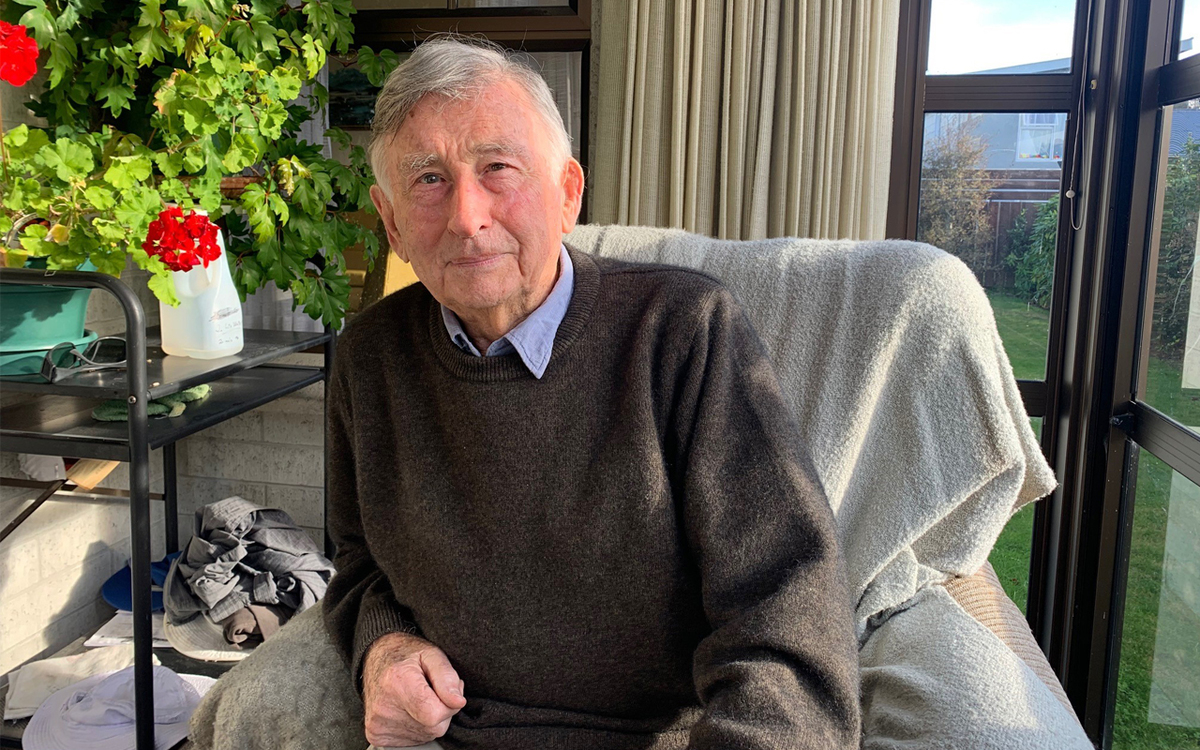Retiree's interest in Selenium deficiency results in book publication
Lucy Henry
15 June 2020, 5:21 PM
 Les Hailes at home. PHOTO: Lucy Henry
Les Hailes at home. PHOTO: Lucy HenryA retired Southland farmer has decided to share his 30-year interest in the effects of Selenium deficiency on human health by publishing a book.
Les Hailes, began his research into Selenium deficiency when he retired from his farm at Woodlaw, near Wairio in the 1990s. He was puzzled as to why his sheep were far healthier than his human neighbours, who all seemed to be suffering from an array of illnesses not too dissimilar from his own 1950s flock.
He had begun supplementing his sheep with Selenium in 1958 but it wasn’t until the mid-80s that he started to realise all the health problems he’d had with his sheep had gone away.
“In farming you don’t think you’ve done something right; you just think you’ve got lucky,” he says in the book.
Shocked by his own realisation, he was now sure that that a lack of Selenium in the soil was the reason his neighbours were so sick and his sheep had become so healthy – and what he found in his research conducted over the next 10 years and beyond, supported his initial hunch.
Amazed at his findings, he then headed to medical conferences to share his knowledge with those attending.
Their responses were consistent – that he should write a paper and share what he found with the world.
Hailes was adamant the story needed to be accessible rather than academic, so he hired Invercargill-based investigative journalist Amanda Nally to co-author the book, and further research literature on the subject.
The result is Just Cause and Effect - the story of Selenium deficiency in New Zealand, a book, which tells an important story that every Kiwi needs to be aware of, its authors say.
Mr Hailes, who still reads academic papers, magazines and keeps up with news, said awareness of Selenium deficiency was becoming mainstream now – although often its human impact was not recognised.
“Every day the papers tell more and more stories about Selenium deficiency – only it’s called suicide, cancer, heart disease and obesity,” he said.
He said the tragedy was that many people around the world were becoming more health-conscious and actively seeking out eating healthier foods; but if the food came from nutrient-starved soils, then the efforts were somewhat futile and the effects of nutrient hunger were felt, he said.
Now living in Invercargill, Mr Hailes, has already received academic accolades from the UK for his first book, which was published just months shy of his 90th birthday.
Ms Nally said she was surprised at what a hit the book had already been overseas.
“We were writing this story for New Zealanders, but funnily enough, in the end, our first audience was the people in the UK,” Ms Nally said.
One of the first praises received after the book's launch came from Margaret Rayman, Professor of Nutritional Medicine at Surrey University, congratulating them on the publication – a scientist whose own work was being read by Mr Hailes 30 years ago.
COVID-19 delayed the original launch of the book in March, so the team changed tack, launching a Kindle version, however a physical book is still planned for later this year.
The Kindle edition can be found here.
AG | TRADES & SUPPLIES

